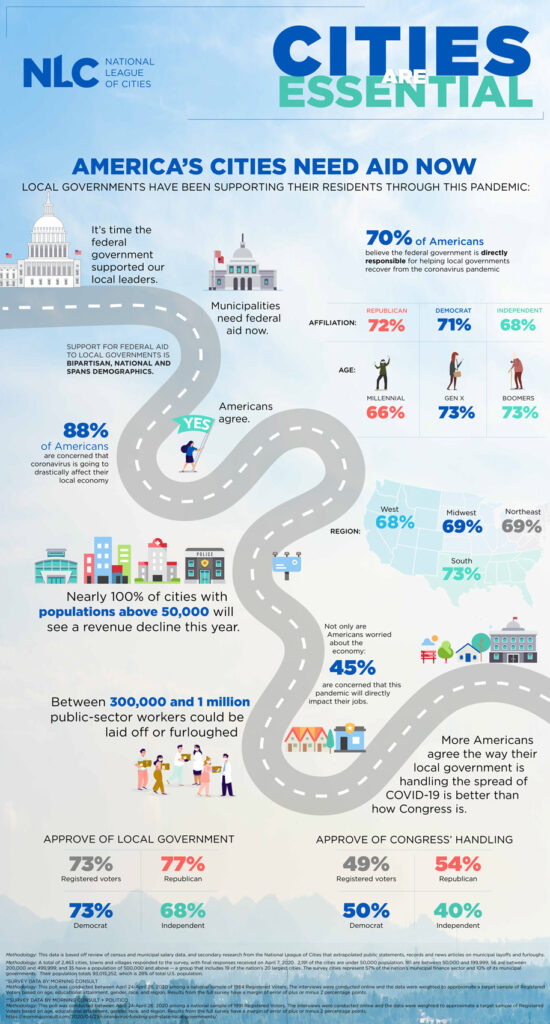Why we’ve signed on to the National League of Cities letter calling for direct economic support for cities
Cities are where daily life unfolds for more than 200 million people across the nation. To ensure cities are able to effectively meet the needs of residents, especially the 11 million kids growing up in poverty in America’s cities, national leaders must support local governments working on the front lines to stem the damage caused by COVID-19.
Families with kids haven’t given up on cities, and policymakers shouldn’t either. Despite predictions that cities are becoming increasingly childless because of factors like rising cost of living, census data tell a different story. In fact, only a handful of the nation’s largest cities have lower rates of households with kids under 18 than the national average. In addition, the idea that the federal government should help local governments recover from the coronavirus pandemic has broad support across the political spectrum.

That’s why KABOOM! recently signed on to a National League of Cities letter advocating for direct economic support for cities, towns and villages across the U.S. so that they can effectively fight the COVID-19 epidemic and emerge as vibrant, resilient, equitable places for kids and families. We agree wholeheartedly: cities are essential.
Cities are where the rubber meets the road on effectively responding to crises like the one we face now. Local leaders in places like the Gulf Coast, Southeast Texas, and Puerto Rico have seen firsthand how disasters create two phases of need: an immediate rush to provide necessities like shelter, food, water, and emergency health care, followed by an often years-long process of rebuilding roads, bridges, schools, parks, playgrounds, and other important infrastructure that residents rely on every day.
Local budgets are already being severely impacted by COVID-19, which is likely to exacerbate disparities for kids who live in neighborhoods that have experienced long-term disinvestment — disinvestment that disproportionally affects black and brown kids. The list of needs is long, but investing in the infrastructure of childhood, including spaces for play, must be part of the broad response to this crisis.
Decades of research show how play itself is a developmental necessity for kids and becomes even more important in the face of adversity and toxic stress. Creating spaces where kids can experience the joy and benefits of play is an important part of the long-term strategy to confront the impacts of this crisis on children. Whether it is the local schoolyard, neighborhood park or housing development, strong cities are an essential part of the solution.
As cities mobilize to overcome this crisis, let’s make sure they have the support they need to respond to this unprecedented challenge and build a more equitable and resilient future for our kids.
